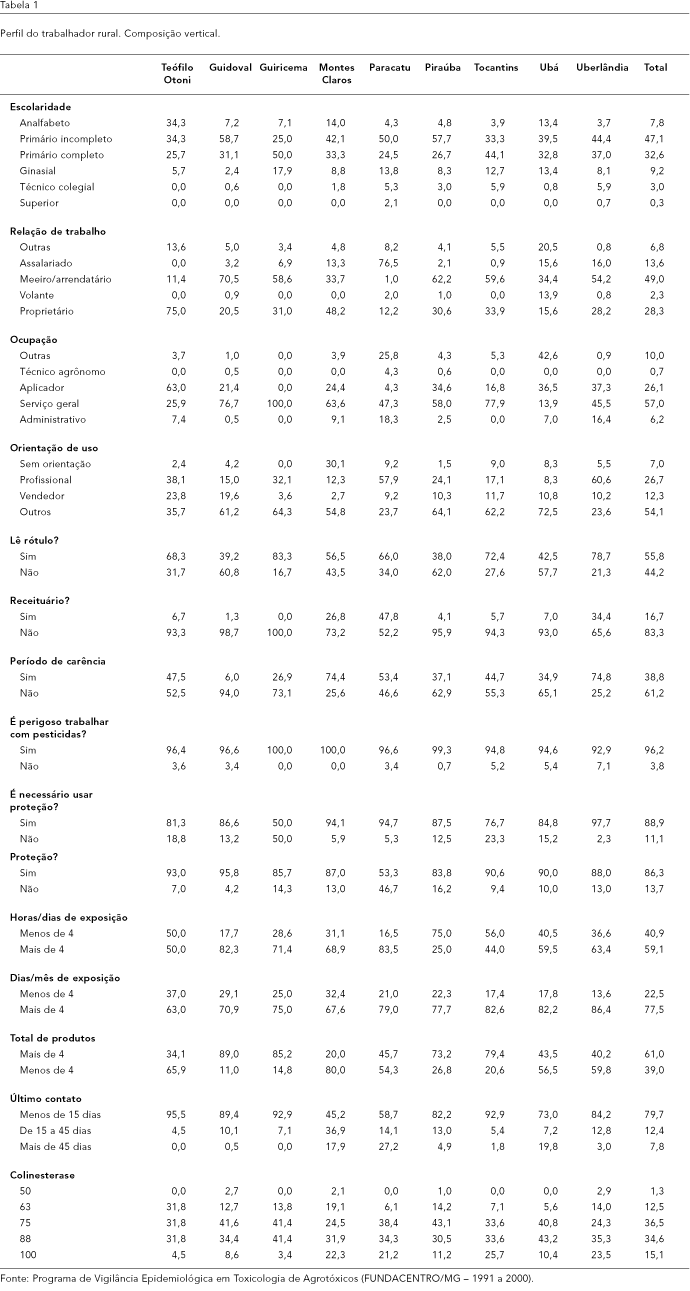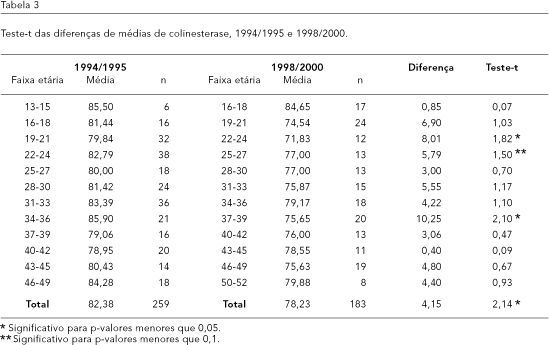This paper aimed to characterize the rural work process in nine counties in Minas Gerais State, considering socio-demographic indicators, the land tenure structure of farm operations, and work practices related to pesticide use and poisoning Data were obtained through the Jorge Duprat Figueiredo Foundation for Workers' Safety and Occupational Medicine, which applied a questionnaire to 1,064 rural workers from 1991 to 2000. Through a logistic regression, risk factors associated with pesticide poisoning were obtained for the carbamate and organophosphate groups. Some 50% of interviewees displayed at least moderate pesticide toxicity. Risk factors for pesticide poisoning were: last contact with pesticides less than two weeks before the blood cholinesterase test; no use of personal protective equipment by workers applying pesticides; having received instructions from the pesticide salesperson; report of carbamates/organophosphates as the main pesticides used; and working in the counties of Teófoli Otoni, Guidoval, or Piraúba. The results emphasize the high level of health risk associated with pesticide use among these rural workers.
Pesticides; Risk Factors; Poisoning; Rural Workers; Rural Health





